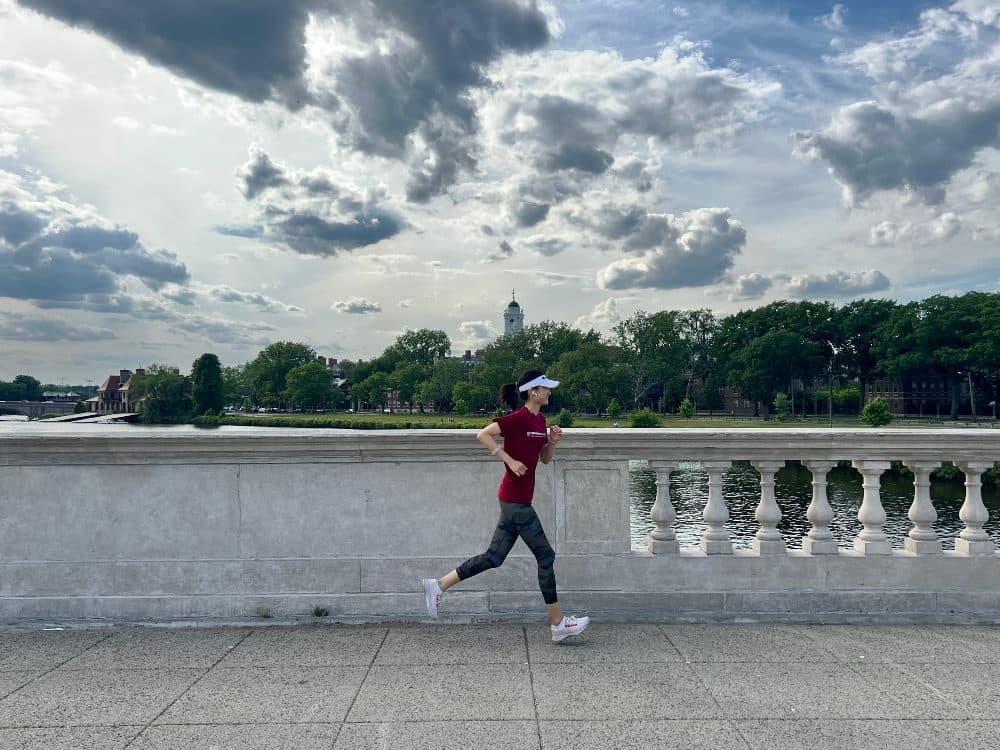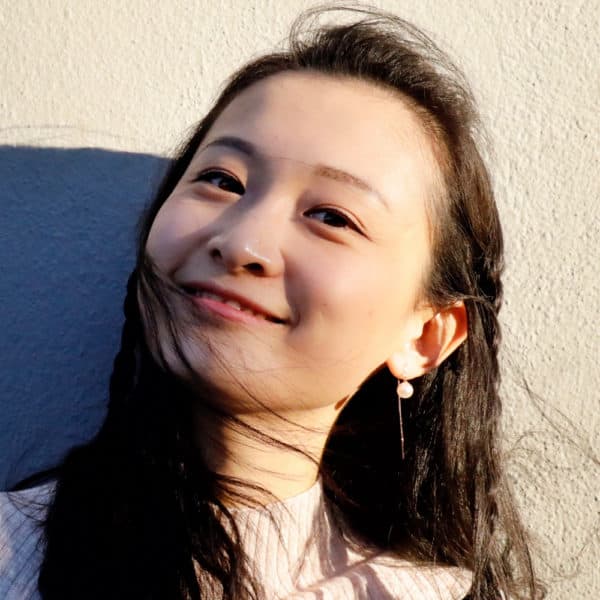Advertisement
Commentary
'I never walked': How Stage 4 cancer made me a runner

I hated running. It was never my thing. More accurately speaking, I had never been a sports person. While my dad loved to play soccer and my grandma once was an amateur gymnast, I rarely enjoyed any physical exercise.
I thought those athletic genes had simply passed me by, but on a scorching hot day during the summer of 2018, I found myself jogging around my Ann Arbor neighborhood. I gasped for breath, even though I barely reached one mile. My legs felt so heavy, I feared I’d trip if I went one step further.
But it was a day of victory for me. It was the first day of recovery from my final round of treatment — 11 cycles of chemotherapy, during which I constantly battled nausea, fatigue, hair loss, numbness and tingling. That was the first run I truly struggled to finish, and my first attempt at becoming someone I never imagined: an athlete.
Five years ago — a year before that first run, and a few days after my 29th birthday — I became something else I never thought I’d be: a Stage 4 colon cancer patient.
Whenever I felt I was about to surrender to my racing heartbeat and shortness of breath, I told myself: 'I can’t stop or walk. I have to run, even if I’m slower than a herd of turtles.'
Just two months before I was diagnosed, I had come all the way from China with two large suitcases to begin my journey as a first-year graduate student at Harvard Kennedy School, imagining what my life would look like during the next two years and after graduation. By the time I was finally admitted to the hospital in Boston, I had been tortured by excruciating pain for months and lost nearly 20 pounds, one-fifth of my body weight.
I thought my case wasn’t special — that everything would be fine once I had the surgery and finished the chemotherapy. Only a few weeks after surgery, however, and before even starting treatment, my tumor made a quick comeback.
Before starting my first day of chemotherapy, my oncologist told me he was deeply sorry that my cancer was incurable. I was so distracted by the postoperative pain and the potential chemo side effects I might suffer that I failed to process the subtlety of what “incurable” really meant. All I knew was I had to gain weight and get through the treatment.
Fast forward to a couple of months later. As I neared the end of my treatment — having completed nine rounds of chemo in Boston, and the final two after a move to Ann Arbor — I found myself miraculously improving. When I learned from my doctor that the most recent CT scan showed no signs of disease, I realized I had to engage in some new activity to help reduce the overwhelming stress that came with the diagnosis. A friend suggested I pick up running, which required nothing but a pair of sneakers.
Running for the first few weeks was pure suffering. Whenever I felt I was about to surrender to my racing heartbeat and shortness of breath, I told myself: “I can’t stop or walk. I have to run, even if I’m slower than a herd of turtles.” It was a way for me to leave behind all the anxiety and fear I had about the future. Instead of worrying, I focused exclusively on every step I ran and every breath I took.
“Your case is so unique that we simply can’t predict anything,” my doctor said when I went to see him for a regular checkup a few months after I went into remission, and a year after my initial diagnosis. When I told him about my new routine, he grinned and said, “Keep running!”
I finally managed to replace the painful memories of falling sick with the gentle breeze and the hopeful sunset.
I went from one mile to two, from three miles to five. Four years into my running journey, I completed my first half-marathon. I have averaged 621 miles per year for the past three years. I started as a very slow runner, and I still am. I do not compete with anyone but myself.
I try to run whenever and wherever. I spent much of my time in the last couple of years in the peaceful Midwestern city of Ann Arbor. Yet I also left my running footprints on the sandy beaches of Tallahassee, the grassy expanse of Central Park in New York City, the wet roads during the drizzle days in Seattle, and the bustling sidewalks around “the Bean” in Chicago.
Since returning to Boston last summer to finish my master’s program, almost four years after first taking leave for treatment, I have run countless times along the dazzling Charles River. I finally managed to replace the painful memories of falling sick with the gentle breeze and the hopeful sunset.
My favorite novelist, Haruki Murakami, ends his book “What I Talk About When I Talk About Running,” with these words: “Someday if I have a gravestone and I’m able to pick out what’s carved on it, I’d like it to say this: ‘At Least He Never Walked.’”
No one can promise me that running will prevent terrible things from recurring, but it makes me feel unstoppable. From the moment I decided to run, I was determined to run for as long as I am alive. I, too, can say I never walked.
